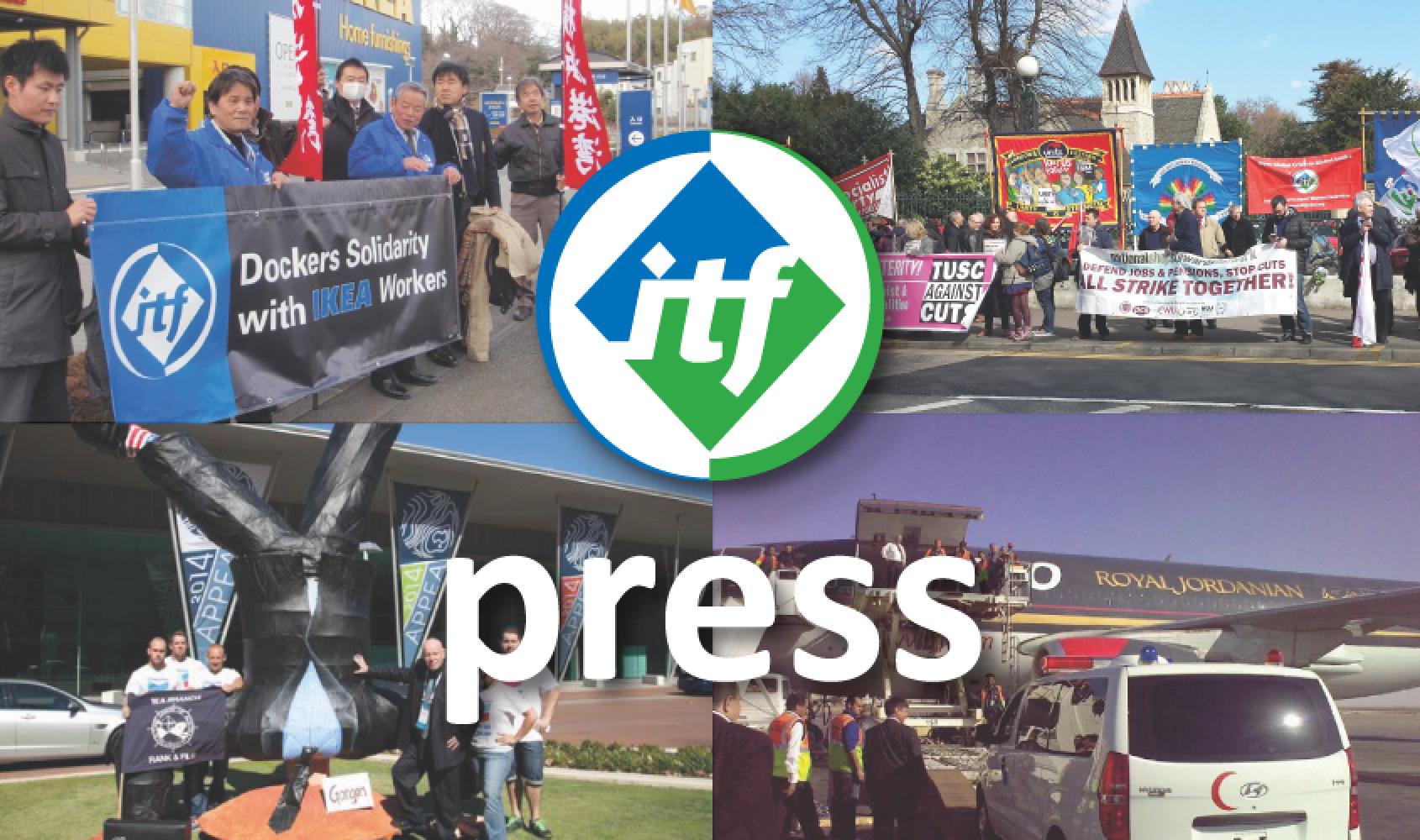
Speaking at the event Smith will say: “The MLC embodies the hopes and aspirations of everyone in this room and beyond who is involved in shipping. It is the best and brightest tool for seafarers’ rights. That is why we all are so closely monitoring its effect and progress.”
“The MLC came into force on 20 August 2013. Since its entry into force the ITF’s 150 inspectors worldwide have been reporting MLC-related problems they’ve encountered. In 2014 our inspectors carried out 7,488 ship visits. Thirty six percent (2,755 vessels) were found to have MLC-related problems. This is a four percent increase (371 more vessels) compared to the first year of the convention’s entry into force. The ITF had expected that the increase in flag states to which the convention applies would have resulted in an improvement in the standards of living and working conditions for seafarers on board their vessels, but based on the number of problems received, this unfortunately does not seem to be the case.”
She will continue: “An optimistic explanation for the increase might be that the convention provides mechanisms that make it easier for seafarers to make complaints. If this is the case, then we can only speculate how many problems went unaddressed prior to the entry into force.
“Either way, there can be no room for complacency.”
The ITF’s survey of the effectiveness of the MLC in its second year (20 August 2014 – 19 August 2015) is based on the real life experiences of seafarers gathered by the ITF’s inspectors. It covers problems found on vessels flying all flags and does not exclude those for which the convention was not in force. It finds that:
- The number of reports of MLC non-compliance has increased in Year 2 of the MLC being in force, both in numbers and as a percentage of inspections
- The flag with the highest number of reported problems is Panama
- The flag with the highest percentage of problematic inspections is St Kitts & Nevis
- The most frequently reported problems relate to unpaid wages; over the first two years during which the MLC has been in force some $89 million has been recovered by ITF inspectors
- The payment of wages below ILO minima is also a significant issue
The number of inspections undertaken in Year 2 increased slightly by 2%. In 2013/2014 there were 146 inspectors and contacts, at 19 August 2015 there were 153.
Of the vessels inspected in Year 2, 36% (2,755) were found to have MLC related problems, up by 4% (371 vessels) on Year 1 when 32% of vessels had problems.
This is not very encouraging given that the MLC is now in force for double the number of states. On entry into force on 20 August 2013, 30 countries had acceded to the MLC regime, at 20 August 2015 the convention was in force for 60 of the 65 countries that have now ratified.
There is no change in the ranking of the top 8 flags associated with the most problems on board their vessels, Panama leads the list with 569 (510 in Year 1), followed by Malta with 245 (229), Liberia with 242 (233), Antigua & Barbuda with 241 (188), Marshall Islands with 192 (155), Bahamas with 123 (91), Cyprus with 89 (78) and Hong Kong with 80 (72). However, Russia has dropped to 12th place, whilst Belize moves up to 9th place with 71 (66) and Singapore to 10th place with 67 (64).
Again this indicates a failure to improve standards and even a trend in the wrong direction. Of the 10 worst flag States in terms of numbers of vessels with MLC related problems, all but Hong Kong have ratified the MLC.
Of the problems reported, the biggest and recurrent issue is that of unpaid wages. In Year 2 almost USD 49 million was recovered by ITF inspectors, compared with just over USD 40 million in Year 1.


Post new comment